Description
A stellar & super clean honey processed coffee. Amazing aromatics, the cup profile leans more towards the washed processed tastes than the natural. Very floral, sweet, higher acidity with rich chocolate & spice tones. Coming from very high altitudes, the beans are small and very dense.
Qunqana washing station in located in the Bensa region of Sidama in Ethiopia. This washing station collects cherry from local small farmers in the area. Its founders Asefa Dukamo and MuluGeta Dukamo opened this washing station under their company Daye Bensa Coffee. In addition to owning their own farm, Daye Bensa Farm, they also own 16 washing stations and 4 dry mills in Bensa, Aroressa and Chire districts of Sidama.
Tasting Notes: Crisp, clean, sweet and very highly rated, a fun treat for any Ethiopian fan. Light roasting is recommended to see the cup shine but hard to find a bad roast point. Lighter roasts are where you will see the cleanliness of the cup, balanced tones with good mouthfeel and hardly a hint of anything grassy or vegetal. It will have some decent brightness, lemony with just a pinch of peachy like fruitiness. The aromatics are unique being overly floral with some classic Ethiopian hints of lavender/jasmine. The lighter tones pull some balance with the classic tea (herbal/spice) like darker tones. Medium roasts really mellow out the acidity and reduce the citric & floral tastes, creates a bit more body and a much more recognizable chocolaty factor. A very smooth, balanced and rich cup with exotic highlights. Darker roasts are fuller bodied and dark toned: roasty, bakers chocolate with some unique spice and rich aromatics.
Roasting Notes: Beautiful processing: will roast pretty even, has higher chaff levels. Surface color during roasting will appear slightly darker than average, generally looks 1 shade darker than it really is, also will pick up a slightly sheen on the surface heading into medium roast territory. Generally folks will want to make sure to cool if they start seeing any sheen on the surface. Especially on air roasters, second half of the roast can go very quickly being a little smaller beaned coffee with higher chaff levels, as you get close to 1st crack you might want to reduce temp slightly. Great tasting 12 hours after roasting but waiting a couple extra days brings some greater depth to the cup.
From Daye Bensa:
Being a child of coffee growing family Asefa used to help his parents in cultivating coffee and other garden crops as all other villagers do but the burden on him was heavy being the first son of his parents.
When he became a teenager he started to do small but many jobs including shoe polishing outside school times which later on progressed to become a coffee supplier to washing stations buying coffee cherries from near by relatives and villagers in addition to coffee from parents garden. By the time he was doing this business there were limited number of washing stations in the area and he had to travel long distances to find a market for his coffee. This was a birth of his dream to become the owner of a washing station if he can help coffee farmers nearby in cutting short their travel time, cost of transportation and of course coffee cherries to be supplies as they are fresh.
His dream became a reality by setting up his first ever washing station in Girja village, less than a mile from his parents’ house with other co-founders holding a major share in 1997 and another washing station in Eltama 30kms away from Girja a year after.
Moving towards the heart of coffee land where he already started living and working after making a family in Daye town in Bensa district he set up a mother washing station called Qonqana (some times called Asefa No. 1 washing station on coffee maps) in 2002, a number one in capacity in the region where many educational trainings and demonstrations take place even by the regional authorities. A dry coffee mill in the town was added to help out with milling the natural coffee. Many expansions and certifications works done since then and now it is one of international coffee visitors destinations in the region.
Coffees in Ethiopia are typically grown on very small plots of land by farmers who also grow other crops. The majority of smallholders will deliver their coffee in cherry to a nearby washing station or central processing unit, where their coffee will be sorted, weighed, and paid for or given a receipt. Coffee is then processed, usually washed or natural, by the washing station and dried on raised beds.
The washing stations serve as many as several hundred to sometimes a thousand or more producers, who deliver cherry throughout the harvest season: The blending of these cherries into day lots makes it virtually impossible under normal circumstances to know precisely whose coffee winds up in which bags on what day, making traceability to the producer difficult. We do, however, make every available effort to source coffee from the same washing stations every year, through our export partners and their connections with mills and washing stations.
Typically farmers in this region don’t have access to and therefore do not utilize fertilizers or pesticides in the production of coffee.
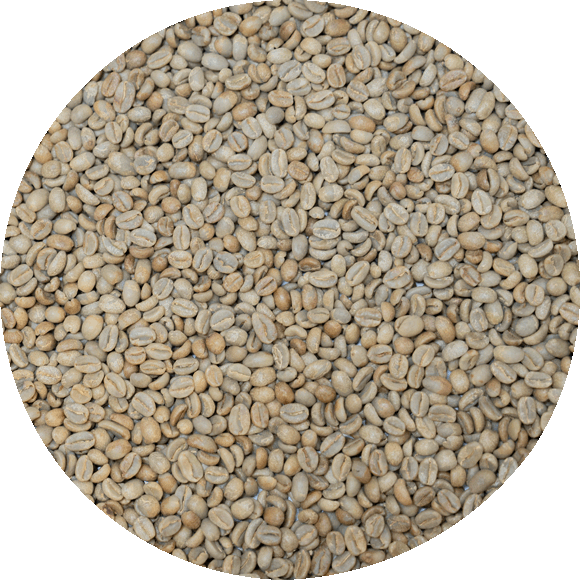
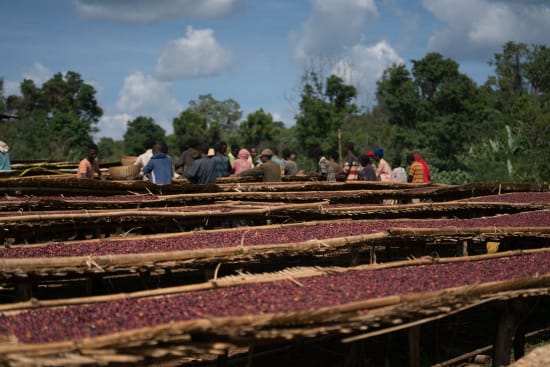
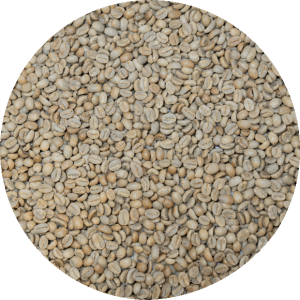
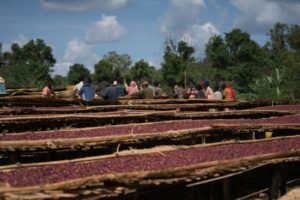
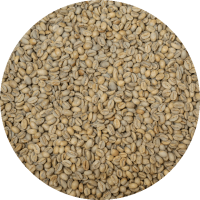
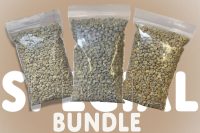
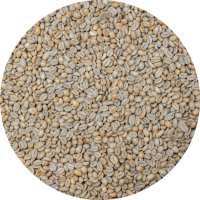
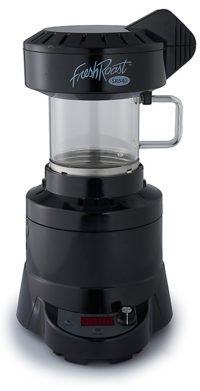

travis.penn (verified owner) –
This is a great coffee. It is full of flavor without funkiness and is clean and curated enough to roast light. I roasted light, made espresso. It has a lot of acidity, but it did not taste lemony or citric to me. It is hard to articulate the blend of acidity and bitterness, but it is a great profile. It is my favorite try in the past few months. It is probably the honey processing that introduces unique fermented acids and metabolites without going into funky natural territory. A must try for African and light roast fans.
12RoastGDR (verified owner) –
Good bean but high and sticky chaff. Be careful when running to darker roasts fellow roasters.